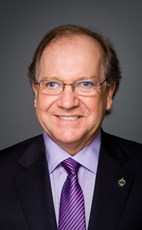moved that Bill C-62, An Act to give effect to the Yale First Nation Final Agreement and to make consequential amendments to other Acts be read a second time and referred to a committee.
Mr. Speaker, it is with great pleasure that I rise today to lead off our discussion of Bill C-62, the Yale First Nation Final Agreement Act.
On April 11, 2013, I had the privilege to be in Vancouver to sign the Yale First Nation Final Agreement along with Chief Robert Hope of Yale First Nation and the Minister of Aboriginal Relations and Reconciliation for the Province of British Columbia.
The final agreement brings certainty to the ownership and use of lands and resources in the area. It creates opportunities for the Yale First Nation and provides predictability for continued development and growth in the province. The introduction of this legislation marks the culmination of almost 20 years of discussion to reach a comprehensive treaty and bring about the bill in front of us tonight.
Now this was no small feat. Before I go any further I want to take a few moments to thank those who made it possible for us to be in a position to consider Bill C-62.
I want to thank the First Nation and the negotiators for their tireless efforts. I also want to thank the chief commissioner of the BC Treaty Commission, Sophie Pierre, as well as Premier Clark and Minister Chong for standing firmly behind the B.C. treaty process.
Most of all, I want to thank the men and women of Yale First Nation for their staunch support of the final agreement. For, in the end, this agreement and this bill are about them, their families and the future of their community.
No one deserves more credit for this final agreement than Yale First Nation Chief Robert Hope. Simply put, we are here today discussing Bill C-62 because of the vision and steadfast commitment of Chief Robert Hope. We must also credit his father, the late Chief Lawrence Hope, whose practical wisdom and quiet strength guided negotiators and continues to do so even after his passing.
I strongly believe that this agreement provides the people of Yale First Nation with a strong foundation on which to build a stable, accountable government and an economically prosperous, culturally vibrant community.
If any member of this House was in doubt of its merit, I am sure that my brief description of the five key areas of the agreement will convince them.
The first of these key areas is its financial components. As part of this comprehensive treaty, Yale First Nation will receive a capital transfer of $10.7 million. The community will also receive $2 million to promote economic development. Canada will also provide Yale First Nation with a one-time funding of $1.4 million and annual funding of some $1.25 million to implement the agreement and provide key programs and services.
The second key area of the agreement is land. As a result of the final agreement, Yale First Nation will own and control nearly 2,000 hectares of treaty settlement land located within the Fraser Valley Regional District just north of the town of Hope.
In addition, 23 hectares of provincial land transferred to Yale First Nation will retain their designation as part of the agricultural land reserve. If any land designated as agricultural land reserve is added to Yale First Nation in the future, this land will also retain its designation as agricultural.
What is more, 233 hectares of Yale First Nation land known as Frozen Lakes will be accessible to the public.

